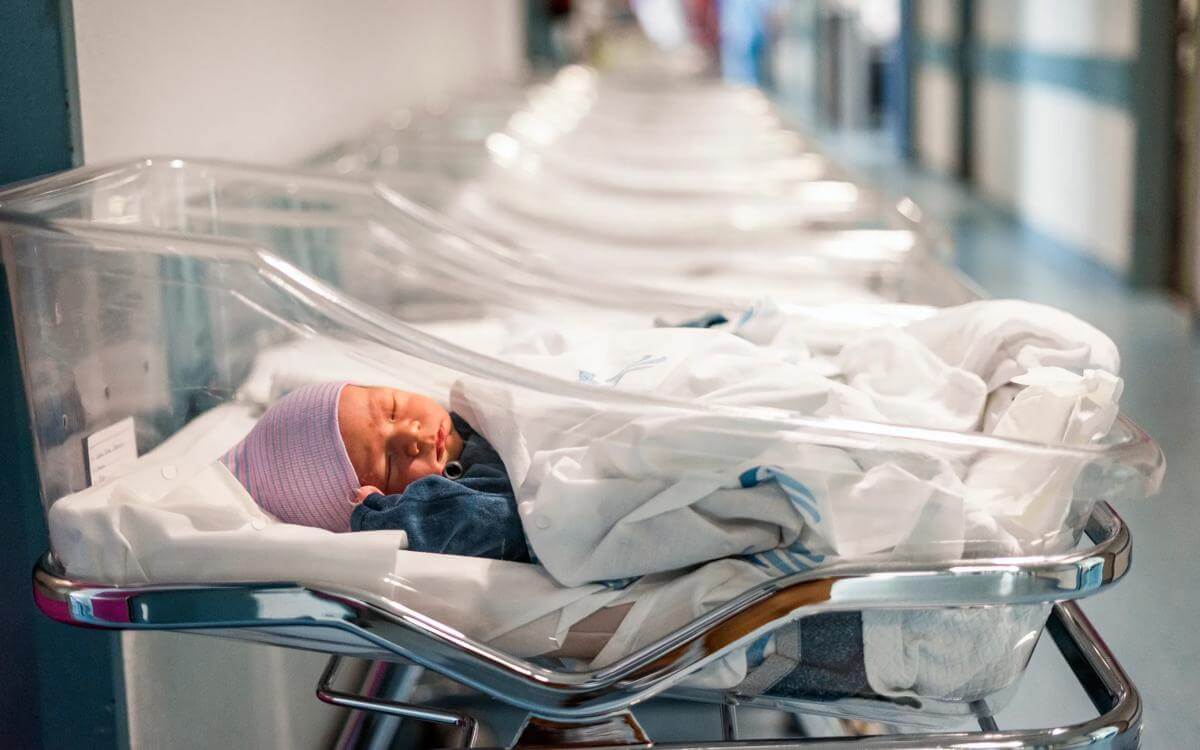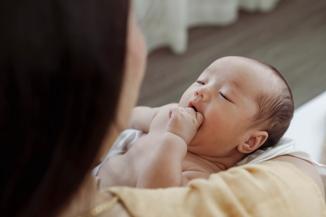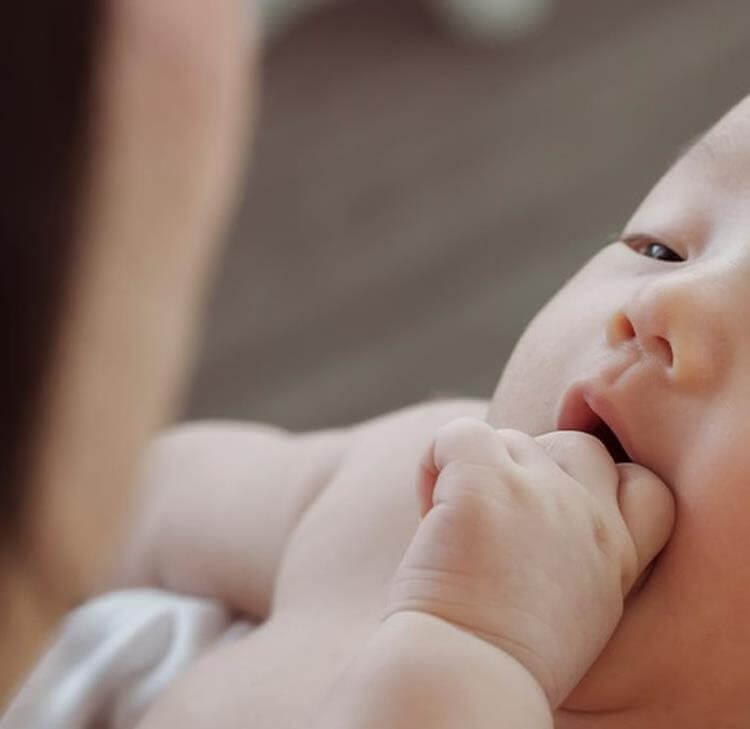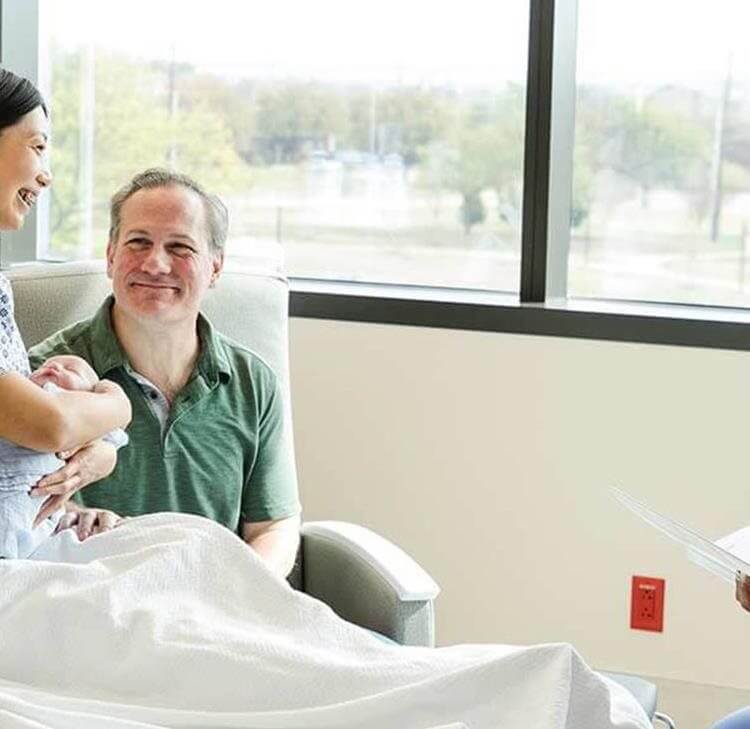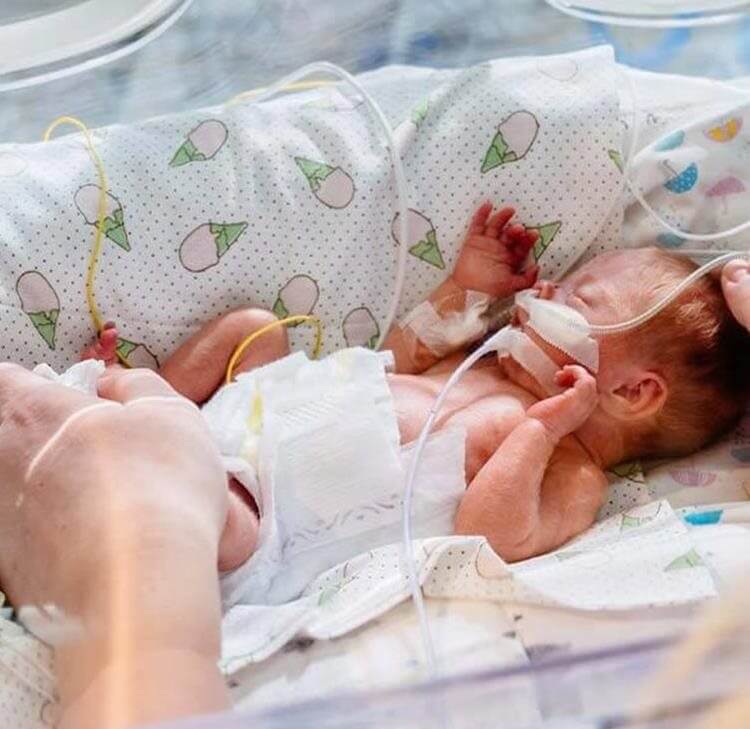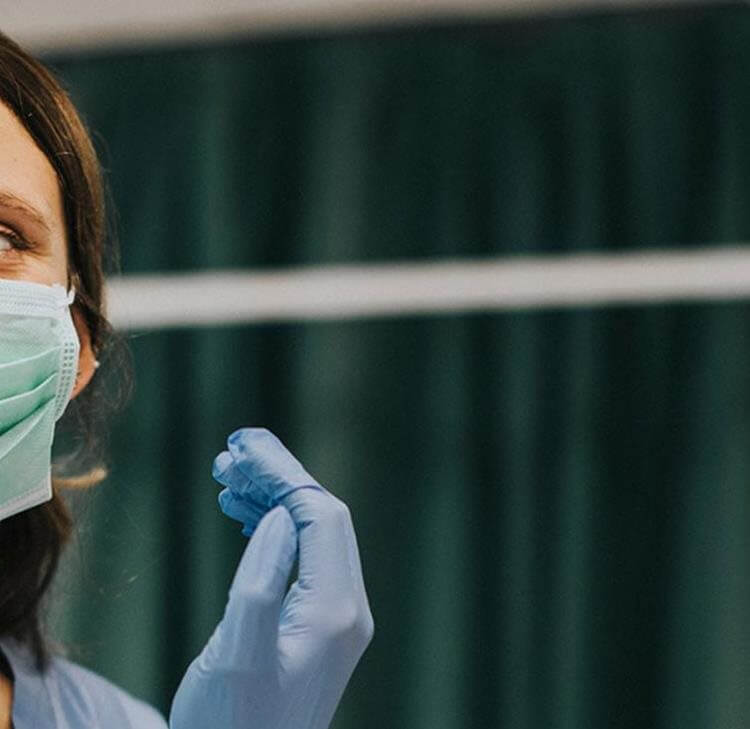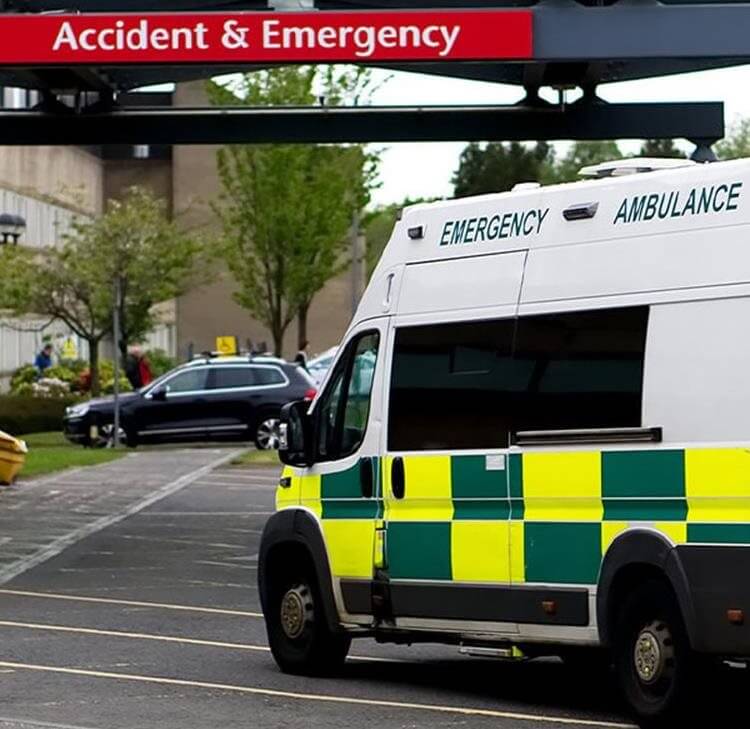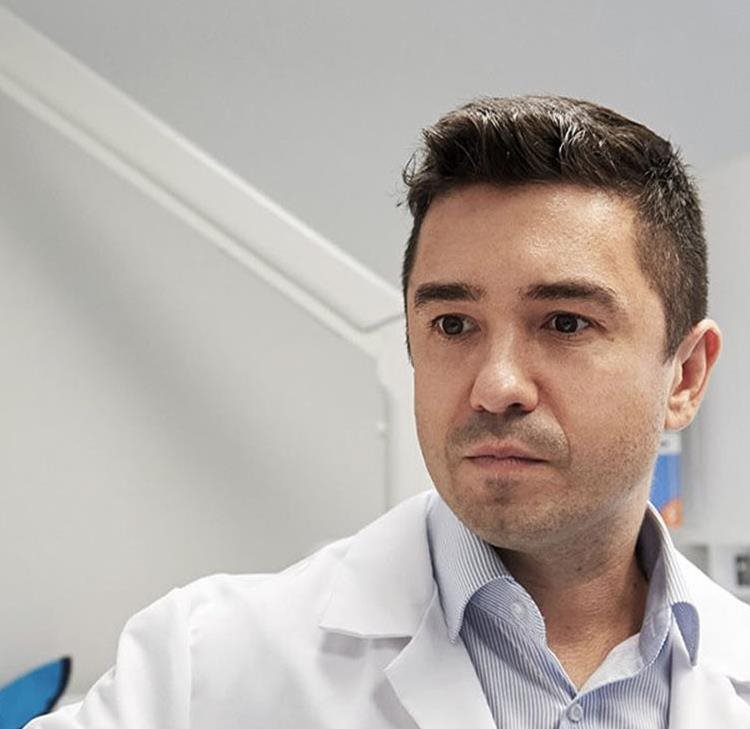Welcome to the Maternity Services Resources Hub. We hope that this facility will support Trusts, with resources aimed at supporting quality improvement work already underway in maternity units across the country.
We are a full-service law firm. Our specialist maternity team has extensive experience of conducting high profile maternity inquests on behalf of NHS trusts. We are instructed by NHS Resolution to handle complex and high-value maternity claims on behalf of its member trusts nationwide. There has been and continues to be a considerable national focus on supporting maternity services to learn from harm in a meaningful way.
Through our position as a leading defendant clinical negligence firm we have significant experience in conducting sensitive investigations to help maternity services resolve concerns and disputes fairly as well as triangulating claims, incidents and complaints data to identify themes and areas of focus for improvement work.
Our work spans many different areas. Some of our services that may interest you include:
- Advisory and inquest.
- Governance and regulatory.
- Clinical negligence claims.
- Employment and workforce.
- Public law, data sharing and disclosure.
- Risk management and patient safety.
We are passionate about safe maternity care and would welcome the opportunity to discuss how we can help you.
"They have staff who cover different areas and they support clients with safeguarding and maternity concerns."
Our maternity resources
Frequently asked questions
Maternity services are currently under intense scrutiny and there has been, and continues to be, a considerable focus on supporting maternity services to learn from harm in a meaningful way to improve safety. Browne Jacobson’s specialist maternity team with experience across incident investigation, complaints, claims, inquests, governance, regulatory and employment issues is ideally placed to support your maternity services.
We understand the financial and human costs when adverse events occur, not only for the families involved but also for your staff. We give practical advice, sharing learning from across the system and supporting the development of collaborative ways of working. We work to help embed a just and learning culture, where staff are supported to raise concerns about safety.
This Hub is a unique facility which provides resources and training materials to support maternity services with improvement work, and provides advice and support in relation to the legal, workforce and regulatory issues that arise from maternity incidents.
We do this in a number of ways and these include carrying out thematic reviews of maternity incidents to identify areas for improvement and delivering training on key issues such as those associated with the Ockenden report.
We run sessions which focus on maternity specific issues with the aim of sharing knowledge and experience between different clinicians. The forum is essentially open discussion of current issues across the health sector. Key learning from the sessions can be accessed on the Shared Insights Hub.
Maternity claims
Whilst claims relating to obstetric and potential neonatal harm make up a relatively low proportion of claims against the NHS overall (10% of the volume of claims received by NHS Resolution in 2019/20), the monetary value of these claims is significant, making up 50% of the total value of claims across all specialities. Claims relating to Hypoxic Ischaemic Encephalopathy (HIE) are some of the highest in value and not just in monetary terms, with tragic and devastating costs for patients and their families and often a significant emotional impact on the staff involved.
Although some cases of HIE are unavoidable, there are others where more timely delivery of the baby may improve the outcome. Understanding and learning from what goes wrong in these cases is a key part of improving safety and outcomes and reducing the costs associated with litigation against the NHS.
Every case is different, but the following clinical themes are often present in the cases we are involved in resolving:
- Errors in fetal heart monitoring
- Failures/delays in escalating concerns leading to delays in delivery
- Documented plans for review not being actioned
- Lack of situational awareness
- Shortcomings in the process to obtain consent
- Shortcomings in communication and record keeping.
Training and events
We can offer tailored bespoke training on areas that directly impact on maternity services. We have included details of some areas we think will be of interest to you and are happy to discuss those areas and how they would benefit your team.
- Data protection overview
- Duty of candour
- Consent and maternal choice
- Record keeping
- Training at Board level focusing on the roles and responsibilities of the Board in ensuring scrutiny and oversight of safety in maternity, with a focus on practical examples of scrutiny and challenge.
Featured event: The Law Society roundtable meeting, October 2025
"We only see one side of it and that's the negative and the horrible, devastating impact on women", Kelly Buckley, Partner
On 15 October 2025, Kelly Buckley, Partner and Lead of Browne Jacobson’s specialist maternity division, took part in the Law Society Gazette’s roundtable meeting on “Clinical negligence in women’s health: legal insights and patient voices”. Now featured in the Gazette’s article authored by Eduardo Reyes, entitled 'Clinical negligence roundtable: Speaking up, speaking out'. The roundtable discussed how lawyers can work with patients, clinicians and health trusts to narrow the divide of the 'gender pain gap’.
The roundtable discussed the recent nationwide investigation into maternity care, the resulting trends in culture that are identified, and the need for further improvements in maternity safety. It was agreed that women’s voices need to be heard, with further opportunity for women to have more input into their own care.
However, some advancements for prompt investigation into poor maternity outcomes have been made in recent years. The role of the Early Notification Scheme (ENS) was discussed. Devised in 2018, the scheme investigates potential claims at a very early stage, with the aim of resolving concerns promptly, whether these translate to compensation or addressing concerns early via mediation. As Kelly is quoted in the article, “The second ENS report stated that in terms of liability alone, the ENS scheme reduced the time for decisions from about seven years to 18 months, so there have been definite savings". Lesson-learning is at the heart of the scheme.
It was agreed that there is a need for collaboration between claimant and defendant lawyers, and Browne Jacobson was commended for their approach to implementing this through ADR.
Maternity mock inquest films
Browne Jacobson has produced a series of films to recreate an inquest hearing focussing on a neonatal death. The films explain the role of the Coroner and the purpose of an inquest and illustrate the procedure during a remote inquest hearing. The clinical scenario is fictitious, and you can read the background here. The aim of these films is to help clinical witnesses to prepare for giving evidence remotely and to illustrate how best a witness can help the Coroner and the family during a remote inquest hearing. We hope these films will support all clinical staff working in maternity services who are called to give evidence remotely at an inquest, so that they can give their evidence clearly, confidently and compassionately. The films also bring out a number of themes that are often seen at inquests into neonatal deaths for learning purposes. We are very grateful to Dr Robert Hunter, HM Senior Coroner for Derby and Derbyshire, for his role in the production of these films. Thank you also to the following NHS professionals who provided invaluable insights and appear in the films: Kathryn Fearn, Associate Director of Legal Services, University Hospitals of Derby and Burton NHS Foundation Trust Jo Hartley, Associate Director of Midwifery & Neonatal Services, Dorset County Hospital NHS Foundation Trust Dr Ruth-Anna Macqueen, Senior Registrar, Obstetrics and Gynaecology, Barking, Havering and Redbridge NHS Trust Lorraine Purcell, Head of Midwifery, University Hospitals Derby and Burton NHS Foundation Trust Dr Jyoti Sidhu, Senior Registrar, Obstetrics and Gynaecology, Barking, Havering and Redbridge NHS Trust.
This film explores the importance of consent discussions, particularly during the antenatal period, and the importance of good documentation.
The film begins with Mum’s evidence about requesting a caesarean section and then shows the obstetrician’s recollection of the discussions about mode of delivery with mum. Unfortunately, the antenatal discussions are poorly documented.
Consent is often a key issue in obstetric claims and if it is relevant to the facts of the death, its likely to be an area explored by a coroner.
The legal framework for obtaining consent is set out in Montgomery v Lanarkshire Health Board [2015] which makes it clear that a clinician is under a duty to take reasonable care to ensure that the patient is aware of any material risks involved in any recommended treatment, and of any reasonable alternative or variant treatments, which in the context of maternity claims, includes the options for mode of delivery.
The importance of informed consent is highlighted in Ockenden preliminary review and Trusts must ensure women have ready access to accurate information to enable their informed choice of intended place of birth and mode of birth, including maternal choice for caesarean delivery.
Consent is not just a one-off process, there has to be ongoing dialogue and all discussions should be carefully documented.
The film illustrates some of the issues that can arise when a witness is poorly prepared.
It also highlights the problems caused by a failure to follow guidelines during the early stages of labour and confusion caused by a variation in the approach taken by clinicians to interpret the CTG.
Errors made during fetal monitoring remains a key feature of the claims and inquest landscape and is another issue highlighted by the Ockenden Report, with a requirement for Trusts to appoint a dedicated Lead Midwife and Lead Obstetrician both with demonstrated expertise to focus on and champion best practice in fetal monitoring.
Learning from claims often focuses on individual error in relation to the interpretation of the CTG but common themes include staff, or groups of staff, using a CTG categorisation or interpretation tool which is not in line with Trust guidelines. It is vital that all staff are properly trained and understand the importance of using a consistent categorisation tool and a systematic approach to CTG interpretation that is in line with local and national guidance. As highlighted in the Ockenden report, any deviations to this must be agreed within a multidisciplinary framework.
Watch failure to follow guidelines and CTG interpretation video
This film highlights the culture and power dynamics in this fictional maternity unit, which are demonstrated by tension between the midwife and doctor and the impact that this had on the care in this case.
As detailed in the Ockenden Report, Trusts must have clear standard operating pathways on when and how to escalate but there also needs to be a culture whereby staff feel able to escalate their concerns and understand that they will be listened to. This is not just about escalation from midwife to obstetrician, but also registrar to consultant. Creating an open and transparent culture where staff feel able to speak up will help Trusts to identify problematic practise before significant issues arise.
The film also emphasises the importance of organisational learning evidence at inquest to provide the Coroner with assurance so that the statutory duty to issue a Report to Prevent Future Deaths is not triggered. If an organisation can demonstrate learning from the death and evidence that action has been taken to prevent future harm in advance of an inquest this may avoid a PFD Report. However, as highlighted in the Chief Coroner’s updated guidance, PFD reports are not intended as a punishment – they are a learning tool, issued for the benefit of the public.
Our specialist teams
Good complaints handling is a crucial way of communicating with patients and their families to provide answers and identify learning to improve future care.
Complaint responses should provide a full explanation for what has happened to satisfy the duty of candour. In addition, responses which are easy to read and understand and which respond with appropriate tone and empathy, can help resolve concerns in a timely manner and may also help to prevent a concern escalating unnecessarily into a claim for compensation.
How we can help
- Deep dive thematic review of complaints to identify clinical themes, trends and learning
- Audit of complaint responses to identify areas for improvement to support early resolution of complaints
- Training to complaint teams on how to write responses that are easy to read and understand
- Textual analysis of your complaint responses to identify how clear your complaint responses are and re-writing a sample to provide examples of more readable responses
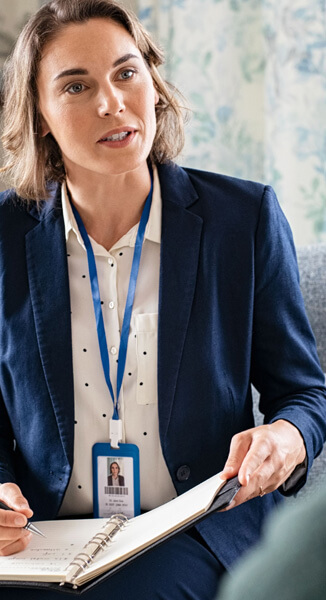
Our Early Maternity Team focuses primarily on supporting the work carried out by NHS Resolution’s Early Notification Team, aimed at improving safety in maternity care through the early investigation of maternity incidents where babies are born with a potentially severe brain injury. They also help Trusts with investigations into cases where babies have died, many of which result in inquests; or where women have suffered severe injuries as a result of childbirth.
What is NHS Resolution’s Early Notification Scheme?
The Early Notification Scheme is a national programme run by NHS Resolution allowing for the early reporting and investigation of cases in order to provide families with early explanations of incidents, fair resolution and highlighting lessons that can be learned. It reflects the Government’s goal of halving the rates of stillbirth, neonatal death and brain injuries associated with obstetric delivery.
Why is this scheme so important?
Historically, resolution of claims relating to birth injury often took a significant time because of the nature of the investigations needed to determine the cause and extent of injury prior to a claimant bringing a claim. This meant that families could be left without support during the early crucial years and made investigation of such incidents difficult, as staff may have moved away or memories may have faded. The introduction of the scheme has led to early admissions of liability, where appropriate, within 18 months of the birth, and enabled support to be provided to families when they need it the most. This unique model can be used to help drive early resolution and costs savings as well as the promotion of full and open conversations with patients and their families about the care provided.
Contact Kelly Buckley or Sian Brown for more information.

At the heart of safe maternity services is the requirement to establish collaborative working with a well-trained workforce and safe staffing levels. From a workforce perspective, organisational development and design will be a key focus, as well as ensuring there are clear escalation policies and accountability to ensure the system operates safely.
When maternity incidents occur, they can have a significant impact on the staff involved. There are many ways in which we can support maternity services to minimise and mitigate the effects on staff and the organisation as a whole. Creating an open and transparent culture where staff feel able to speak up will help employers to identify problematic practice before significant issues arise. We have a number of training packages which can be delivered to all levels of employee from front line workers to senior leaders. This ensures that freedom to speak up is embedded across the organisation and that every member of staff understands and is able to carry out their responsibilities to raise concerns.
In some cases, where there is evidence of misconduct or a lack of capability, there will be a need to take more formal action against employees. We regularly support our clients in conducting such processes, ensuring they adopt a compassionate approach. We use our knowledge and experience of legal cases and sector guidance to develop bespoke training packages and to inform those tasked with conducting internal HR processes to avoid repeating mistakes that have been made in the past. We can give support at all stages of an internal process, from framing the Terms of Reference for an investigation to advising disciplinary and appeals panels.
How we can help
- Advice and support on:
- Safe staffing/escalation and mitigation policies
- Implementation of new roles provided for in Ockenden report
- Implementation of preceptorship programme
- Staff training in line with Ockenden key messages
- Gap analysis of leadership, management and staffing roles in maternity workforce
- Review of Speak Up processes
- Delivery of Ward to Board training session on Speaking Up as recommended by the National Guardian’s Office
- Training and support focusing on the Compassionate Leadership approach including issues such as;
- Keeping the “human” in Human Resources – lessons learned from employment tribunals and high profile case reviews
- Responding to whistleblowing and bullying concerns in the healthcare sector – a legal and regulatory perspective
- Managing workplace investigations (e.g. bullying, disciplinary); what you need to know
- Managing mental health and wellbeing in the workplace
- Managing sickness absence and reasonable adjustments
- Tackling poor performance with confidence
For more information please contact Bridget Prosser.

Our specialist health sector inquest and advisory team provides expert evidence on all patient-facing matters which affect NHS and private healthcare organisations. The team has outstanding experience of representing NHS and private healthcare organisations at inquests involving maternity care across the country. Located across each of our regional offices, our people are known and well respected by Coroners nationally. We are trusted by clients to provide user-friendly, straightforward advice and excellent representation in court and to support witnesses and organisations throughout the inquest process, having particular regard to reputational impact and prevention of future death strategy.
Our specialist inquest and advisory team have considerable experience of supporting maternity services with sensitive maternal and neonatal inquests. These can be high profile and stressful experiences for staff, all of which is at the forefront of our minds when we support you through the inquest process. We have one of the largest, most well-respected healthcare inquest teams in the country, dealing with more than 450 inquests annually. Located across each of our regional offices, our people are known and well respected by Coroners nationally. We are trusted by clients to provide user-friendly, straightforward advice and excellent representation in Court. We support staff through the inquest process, having particular regard to reputational impact and the prevention of future death strategy.
During the Covid-19 pandemic we developed an on-line mock inquest training programme, so that we could support our clients and their staff to prepare for inquests. Our Remote mock inquest was developed to support staff attending inquests remotely during the pandemic. We have developed an online mock inquest, split into 4 modules, aimed at individuals who would benefit from understanding the inquest process, including those working in clinical governance and risk, complaints, family liaison and in-house legal teams.
We have also produced a series of films to recreate an inquest hearing focussing on a neonatal death. The films explain the role of the Coroner and the purpose of an inquest and illustrate the procedure during a remote inquest hearing, including how best a witness can assist the Coroner. We hope these films will support staff working in maternity services who are called to give evidence at an inquest, so that they can give their evidence clearly, confidently and compassionately. The films also bring out a number of themes that are often seen at inquests into neonatal deaths for learning purposes.
For more information please contact Rebecca Fitzpatrick or Nicola Evans.
NHS Resolution’s purpose “to resolve concerns, share learning for improvement and preserve resources for patient care” underpins each maternity claim we deal with.
In 2017, delivering fair resolution and learning from harm was the headline of NHS Resolution’s 5-year strategic plan. Along with the NHS Resolution’s Early Notification scheme (an innovative national programme for improving maternity care), early mediation is a key part of NHS Resolution’s plan to go ‘upstream’ and get closer to the index events to reduce claimant solicitors spiralling costs and move to a patient centred approach. Being at the forefront of this work (early maternity and mediation), we are uniquely able to influence best practice and share learning which will result in better outcomes for patients and Trusts.
Our team purpose is to provide expertise to the NHS to resolve concerns fairly, share learning for improvement and preserve resources for patient care.
Mediation and ADR is hugely important for NHS Resolution and NHS Trusts as it offers a unique opportunity for the relationship between a healthcare provider and a patient to be repaired; reduces Trust input if a case can be resolved quicker and reduces the impact on the ‘second victim’ (i.e. the profound impact of a clinical negligence claim on clinicians who Trusts need to retain). We therefore work closely with Trusts and support them through the mediation process such as with the provision of our ‘Mediation Memo’ – a clinicians guide to attending a mediation.
Within our Early Maternity team, Kelly Buckley, Partner is the department’s ‘mediation champion’ and our team are experienced in resolving the most complex and high profile disputes at mediation (including mediating claims within the Early Notification scheme). In all our early maternity work we do, we are advocates for empathetic and holistic resolution and resolve patients’ disputes fairly, efficiently and with integrity, putting the injured patient at the heart of the work we do.
As the courts push more pressure out of the system into private dispute resolution, there will be an increased demand for mediation. By collaborating together, we support further upstream collaboration between NHS Trusts and families; can carry out medical mediations and work with NHS Trusts to improve the patient complaint journey.
Contact Kelly Buckley for more information.
Donna Ockenden’s report, published on 30 March 2022 sets a new blue print for safe maternity care which will impact on every maternity service, setting out a call for Immediate and Essential Actions (IEAs). Maternity services are required to take action to identify and mitigate risks and develop robust plans against areas where maternity services need to make changes, paying particular attention to the report’s four key pillars:
- Safe staffing levels
- A well-trained workforce
- Learning from incidents
- Listening to families
Our specialist risk management team have experience of working with maternity services to improve safety and support maternity quality improvement work. We regularly arrange collaboration events to share learning, provide quality assurance awareness for Boards, and deliver training on maternity related topics such as consent and maternal choice. We can help your organisation triangulate data from incidents, complaints and claims, carrying out thematic reviews to provide insights into themes and identify areas for improvement.
Maternity incident investigation is changing with the creation of the Maternity and Newborn Safety Investigations Special Health Authority (MNSI) and the implementation of a new approach to the investigation of patient safety incidents under the Patient Safety Response Framework (PSIRF). We can provide advice and support to help with this transition and to ensure the implementation of an effective and compassionate patient safety reporting, learning and improvement system, underpinned by openness and transparency, just culture and continuous learning and improvement.
How we can help
- Deep dive thematic review of maternity incidents, complaints and claims to identify themes, trends and areas of focus for improvement work
- Assist with incident response, advising on the most appropriate way to investigate and respond including case note review; time mapping; “being open” conversations; after action review and audit
- Review draft incident investigation reports to ensure they are clear, and effectively communicate findings which are based on the evidence and linked to appropriate recommendations
- Provide practical training for investigations exploring how to approach the writing of a good quality investigation report including;
- The purpose of the report and considering your audience
- How to set appropriate and clearly defined Terms of Reference
- The duty of candour – the legal framework and what this means in practice
- How to collate, review and evaluate different sources of evidence
- Writing the report, including how to:
- Use clear and concise language and structure to effectively communicate findings
- Identify the systematic and interconnected causes of yoan incident
- Link findings to evidence and make appropriate recommendations that are based on evidence-based findings
- How to support staff and ensure a just culture
- What processes and other investigations may follow including an overview of the inquest and claims process
- Audit of SI/PSIRF and HSIB action plans
- Advise on the implementation of the Immediate and Essential Actions from the Ockenden report
If you would like to discuss how our risk management team could help, please contact Amelia Newbold, Kelly Buckley and Sian Brown.

Increasingly incidents in maternity services are attracting regulatory action from the Care Quality Commission, including actions against Trusts’ registrations and prosecutions resulting in substantial fines. Our criminal, compliance and regulatory team includes a number of healthcare specialists who can help guide maternity services through these processes.
We can provide advice on preparing for scrutiny, including well lead inspections and helping to meet the standards set by the CQC. We also assist when things don’t go to plan, advising and representing in respect of regulatory and criminal investigations, enforcement action and prosecutions. We have successfully challenged CQC draft reports, warning notices and the imposition of registration conditions.
How we can help
- Provide advice on regulatory requirements and information law obligations
- Provide training on how to deal with inspections by a range of regulators including training on preparing for a CQC inspection including the upcoming new inspection framework
- Advise on CQC registration requirements and assist in the process
- Audit of external report recommendations e.g. CQC/MIS declaration/assurance reviews/maternity transformation plans/healthcare commission/CCG review
- Review of internal governance processes and structures for the reporting, investigation, learning and implementation of maternity wide changes
- Ongoing CQC advice – duty of candour, inspection responses, enforcement and prosecutions
- Support and advice on inquiries and investigations, both local and national
For more information please contact Carl May-Smith.

Our monthly Shared Insights forum runs sessions focused on maternity specific issues to facilitate the sharing of knowledge, experiences and good practice across the health sector. You can access the key learning from previous Shared Insights sessions on the Shared Insights Hub and this includes resources focussed on the Key themes arising from obstetric claims and inquests.
Shared Insights focusing on maternity:
- Shared Insights: Mental Health in Maternity
- Shared Insights: Implementing the Ockenden Immediate and Essential Actions for safe maternal and newborn care
To find out about our next event or register to join the Shared insights Forum contact Nicola Evans.
Good complaints handling is a crucial way of communicating with patients and their families to provide answers and identify learning to improve future care.
Complaint responses should provide a full explanation for what has happened to satisfy the duty of candour. In addition, responses which are easy to read and understand and which respond with appropriate tone and empathy, can help resolve concerns in a timely manner and may also help to prevent a concern escalating unnecessarily into a claim for compensation.
How we can help
- Deep dive thematic review of complaints to identify clinical themes, trends and learning
- Audit of complaint responses to identify areas for improvement to support early resolution of complaints
- Training to complaint teams on how to write responses that are easy to read and understand
- Textual analysis of your complaint responses to identify how clear your complaint responses are and re-writing a sample to provide examples of more readable responses

Our Early Maternity Team focuses primarily on supporting the work carried out by NHS Resolution’s Early Notification Team, aimed at improving safety in maternity care through the early investigation of maternity incidents where babies are born with a potentially severe brain injury. They also help Trusts with investigations into cases where babies have died, many of which result in inquests; or where women have suffered severe injuries as a result of childbirth.
What is NHS Resolution’s Early Notification Scheme?
The Early Notification Scheme is a national programme run by NHS Resolution allowing for the early reporting and investigation of cases in order to provide families with early explanations of incidents, fair resolution and highlighting lessons that can be learned. It reflects the Government’s goal of halving the rates of stillbirth, neonatal death and brain injuries associated with obstetric delivery.
Why is this scheme so important?
Historically, resolution of claims relating to birth injury often took a significant time because of the nature of the investigations needed to determine the cause and extent of injury prior to a claimant bringing a claim. This meant that families could be left without support during the early crucial years and made investigation of such incidents difficult, as staff may have moved away or memories may have faded. The introduction of the scheme has led to early admissions of liability, where appropriate, within 18 months of the birth, and enabled support to be provided to families when they need it the most. This unique model can be used to help drive early resolution and costs savings as well as the promotion of full and open conversations with patients and their families about the care provided.
Contact Kelly Buckley or Sian Brown for more information.

At the heart of safe maternity services is the requirement to establish collaborative working with a well-trained workforce and safe staffing levels. From a workforce perspective, organisational development and design will be a key focus, as well as ensuring there are clear escalation policies and accountability to ensure the system operates safely.
When maternity incidents occur, they can have a significant impact on the staff involved. There are many ways in which we can support maternity services to minimise and mitigate the effects on staff and the organisation as a whole. Creating an open and transparent culture where staff feel able to speak up will help employers to identify problematic practice before significant issues arise. We have a number of training packages which can be delivered to all levels of employee from front line workers to senior leaders. This ensures that freedom to speak up is embedded across the organisation and that every member of staff understands and is able to carry out their responsibilities to raise concerns.
In some cases, where there is evidence of misconduct or a lack of capability, there will be a need to take more formal action against employees. We regularly support our clients in conducting such processes, ensuring they adopt a compassionate approach. We use our knowledge and experience of legal cases and sector guidance to develop bespoke training packages and to inform those tasked with conducting internal HR processes to avoid repeating mistakes that have been made in the past. We can give support at all stages of an internal process, from framing the Terms of Reference for an investigation to advising disciplinary and appeals panels.
How we can help
- Advice and support on:
- Safe staffing/escalation and mitigation policies
- Implementation of new roles provided for in Ockenden report
- Implementation of preceptorship programme
- Staff training in line with Ockenden key messages
- Gap analysis of leadership, management and staffing roles in maternity workforce
- Review of Speak Up processes
- Delivery of Ward to Board training session on Speaking Up as recommended by the National Guardian’s Office
- Training and support focusing on the Compassionate Leadership approach including issues such as;
- Keeping the “human” in Human Resources – lessons learned from employment tribunals and high profile case reviews
- Responding to whistleblowing and bullying concerns in the healthcare sector – a legal and regulatory perspective
- Managing workplace investigations (e.g. bullying, disciplinary); what you need to know
- Managing mental health and wellbeing in the workplace
- Managing sickness absence and reasonable adjustments
- Tackling poor performance with confidence
For more information please contact Bridget Prosser.

Our specialist health sector inquest and advisory team provides expert evidence on all patient-facing matters which affect NHS and private healthcare organisations. The team has outstanding experience of representing NHS and private healthcare organisations at inquests involving maternity care across the country. Located across each of our regional offices, our people are known and well respected by Coroners nationally. We are trusted by clients to provide user-friendly, straightforward advice and excellent representation in court and to support witnesses and organisations throughout the inquest process, having particular regard to reputational impact and prevention of future death strategy.
Our specialist inquest and advisory team have considerable experience of supporting maternity services with sensitive maternal and neonatal inquests. These can be high profile and stressful experiences for staff, all of which is at the forefront of our minds when we support you through the inquest process. We have one of the largest, most well-respected healthcare inquest teams in the country, dealing with more than 450 inquests annually. Located across each of our regional offices, our people are known and well respected by Coroners nationally. We are trusted by clients to provide user-friendly, straightforward advice and excellent representation in Court. We support staff through the inquest process, having particular regard to reputational impact and the prevention of future death strategy.
During the Covid-19 pandemic we developed an on-line mock inquest training programme, so that we could support our clients and their staff to prepare for inquests. Our Remote mock inquest was developed to support staff attending inquests remotely during the pandemic. We have developed an online mock inquest, split into 4 modules, aimed at individuals who would benefit from understanding the inquest process, including those working in clinical governance and risk, complaints, family liaison and in-house legal teams.
We have also produced a series of films to recreate an inquest hearing focussing on a neonatal death. The films explain the role of the Coroner and the purpose of an inquest and illustrate the procedure during a remote inquest hearing, including how best a witness can assist the Coroner. We hope these films will support staff working in maternity services who are called to give evidence at an inquest, so that they can give their evidence clearly, confidently and compassionately. The films also bring out a number of themes that are often seen at inquests into neonatal deaths for learning purposes.
For more information please contact Rebecca Fitzpatrick or Nicola Evans.
NHS Resolution’s purpose “to resolve concerns, share learning for improvement and preserve resources for patient care” underpins each maternity claim we deal with.
In 2017, delivering fair resolution and learning from harm was the headline of NHS Resolution’s 5-year strategic plan. Along with the NHS Resolution’s Early Notification scheme (an innovative national programme for improving maternity care), early mediation is a key part of NHS Resolution’s plan to go ‘upstream’ and get closer to the index events to reduce claimant solicitors spiralling costs and move to a patient centred approach. Being at the forefront of this work (early maternity and mediation), we are uniquely able to influence best practice and share learning which will result in better outcomes for patients and Trusts.
Our team purpose is to provide expertise to the NHS to resolve concerns fairly, share learning for improvement and preserve resources for patient care.
Mediation and ADR is hugely important for NHS Resolution and NHS Trusts as it offers a unique opportunity for the relationship between a healthcare provider and a patient to be repaired; reduces Trust input if a case can be resolved quicker and reduces the impact on the ‘second victim’ (i.e. the profound impact of a clinical negligence claim on clinicians who Trusts need to retain). We therefore work closely with Trusts and support them through the mediation process such as with the provision of our ‘Mediation Memo’ – a clinicians guide to attending a mediation.
Within our Early Maternity team, Kelly Buckley, Partner is the department’s ‘mediation champion’ and our team are experienced in resolving the most complex and high profile disputes at mediation (including mediating claims within the Early Notification scheme). In all our early maternity work we do, we are advocates for empathetic and holistic resolution and resolve patients’ disputes fairly, efficiently and with integrity, putting the injured patient at the heart of the work we do.
As the courts push more pressure out of the system into private dispute resolution, there will be an increased demand for mediation. By collaborating together, we support further upstream collaboration between NHS Trusts and families; can carry out medical mediations and work with NHS Trusts to improve the patient complaint journey.
Contact Kelly Buckley for more information.
Donna Ockenden’s report, published on 30 March 2022 sets a new blue print for safe maternity care which will impact on every maternity service, setting out a call for Immediate and Essential Actions (IEAs). Maternity services are required to take action to identify and mitigate risks and develop robust plans against areas where maternity services need to make changes, paying particular attention to the report’s four key pillars:
- Safe staffing levels
- A well-trained workforce
- Learning from incidents
- Listening to families
Our specialist risk management team have experience of working with maternity services to improve safety and support maternity quality improvement work. We regularly arrange collaboration events to share learning, provide quality assurance awareness for Boards, and deliver training on maternity related topics such as consent and maternal choice. We can help your organisation triangulate data from incidents, complaints and claims, carrying out thematic reviews to provide insights into themes and identify areas for improvement.
Maternity incident investigation is changing with the creation of the Maternity and Newborn Safety Investigations Special Health Authority (MNSI) and the implementation of a new approach to the investigation of patient safety incidents under the Patient Safety Response Framework (PSIRF). We can provide advice and support to help with this transition and to ensure the implementation of an effective and compassionate patient safety reporting, learning and improvement system, underpinned by openness and transparency, just culture and continuous learning and improvement.
How we can help
- Deep dive thematic review of maternity incidents, complaints and claims to identify themes, trends and areas of focus for improvement work
- Assist with incident response, advising on the most appropriate way to investigate and respond including case note review; time mapping; “being open” conversations; after action review and audit
- Review draft incident investigation reports to ensure they are clear, and effectively communicate findings which are based on the evidence and linked to appropriate recommendations
- Provide practical training for investigations exploring how to approach the writing of a good quality investigation report including;
- The purpose of the report and considering your audience
- How to set appropriate and clearly defined Terms of Reference
- The duty of candour – the legal framework and what this means in practice
- How to collate, review and evaluate different sources of evidence
- Writing the report, including how to:
- Use clear and concise language and structure to effectively communicate findings
- Identify the systematic and interconnected causes of yoan incident
- Link findings to evidence and make appropriate recommendations that are based on evidence-based findings
- How to support staff and ensure a just culture
- What processes and other investigations may follow including an overview of the inquest and claims process
- Audit of SI/PSIRF and HSIB action plans
- Advise on the implementation of the Immediate and Essential Actions from the Ockenden report
If you would like to discuss how our risk management team could help, please contact Amelia Newbold, Kelly Buckley and Sian Brown.

Increasingly incidents in maternity services are attracting regulatory action from the Care Quality Commission, including actions against Trusts’ registrations and prosecutions resulting in substantial fines. Our criminal, compliance and regulatory team includes a number of healthcare specialists who can help guide maternity services through these processes.
We can provide advice on preparing for scrutiny, including well lead inspections and helping to meet the standards set by the CQC. We also assist when things don’t go to plan, advising and representing in respect of regulatory and criminal investigations, enforcement action and prosecutions. We have successfully challenged CQC draft reports, warning notices and the imposition of registration conditions.
How we can help
- Provide advice on regulatory requirements and information law obligations
- Provide training on how to deal with inspections by a range of regulators including training on preparing for a CQC inspection including the upcoming new inspection framework
- Advise on CQC registration requirements and assist in the process
- Audit of external report recommendations e.g. CQC/MIS declaration/assurance reviews/maternity transformation plans/healthcare commission/CCG review
- Review of internal governance processes and structures for the reporting, investigation, learning and implementation of maternity wide changes
- Ongoing CQC advice – duty of candour, inspection responses, enforcement and prosecutions
- Support and advice on inquiries and investigations, both local and national
For more information please contact Carl May-Smith.

Our monthly Shared Insights forum runs sessions focused on maternity specific issues to facilitate the sharing of knowledge, experiences and good practice across the health sector. You can access the key learning from previous Shared Insights sessions on the Shared Insights Hub and this includes resources focussed on the Key themes arising from obstetric claims and inquests.
Shared Insights focusing on maternity:
- Shared Insights: Mental Health in Maternity
- Shared Insights: Implementing the Ockenden Immediate and Essential Actions for safe maternal and newborn care
To find out about our next event or register to join the Shared insights Forum contact Nicola Evans.
Testimonials
"Uniquely experienced having advised a number of clients on the changing legislative landscape. This provides relevant, timely and bespoke legal advice."
"Knowledgeable, capable, skilled legally and tactical with a caring personal touch."
Key contacts

Kelly Buckley
Partner

Sian Brown
Partner

Anna Saccaggi
Principal Associate

Rebecca Coe
Partner








